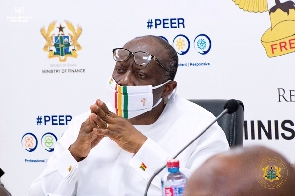The government has announced that it has successfully secured terms for an amended power purchase agreement (PPA) with CENIT Energy Limited (CEL), one of the independent power producers (IPPs) with whom talks are currently being held to renegotiate their PPAs.
Under the new terms, CEL, which is owned by the Social Security and National Insurance Trust (SSNIT) through a special purpose investment vehicle, has agreed to convert its PPA into a tolling structure and to transfer all resulting cost savings to its power purchaser, the Electricity Company of Ghana (ECG).
A tolling agreement, as generally used in the global energy industry, means the government or ECG would provide fuel to CEL’s power plant and also determine the amount of power to be produced, while CEL retains operational control of the plant.
In addition, the government said CEL has agreed to a further reduction in its capital recovery tariff of 38.9 percent, resulting in total savings to the state of more than US$200m over the remaining life of the PPA.
Since 2019, the government has been holding talks with about 12 IPPs in the energy sector in a bid to convert their PPAs, which are based on take-or-pay terms, to terms which are less costly for ECG and government.
This was after the Finance Minister, Ken Ofori-Atta, revealed that the government pays over US$500m a year for unused electricity, arising from take-or-pay PPAs which oblige the government to pay for power produced by IPPs irrespective of need or demand.
Most of the PPAs were signed during the previous administration amid a protracted power crisis that the then government was keen to resolve. According to the Ministry of Finance, the tariffs agreed in those PPAs were not competitive and have contributed significantly to the build-up of debt and oversupply of power in the energy sector.
“The commitment made by CEL is crucial in reinforcing government’s efforts to build a balanced and sustainable energy sector,” said a press statement on Friday from the Ministry of Finance.
“The terms agreed to between government and CEL will produce a more favourable situation for both parties and ultimately reduce the cost of electricity for the people of Ghana,” the statement added.
The statement encouraged other IPPs to emulate CENIT in helping government reduce the debt hangover in the energy sector.
However, signals given by the IPPs suggest the government would not have it easy in renegotiating the other PPAs. Just last week, a report in the press said the IPPs had threatened to shut their plants by the end of September if the government failed to clear debts owed them.
The PPA renegotiations are being done as part of the Energy Sector Recovery Programme (ESRP), which is a five-year reform plan aimed at restoring the financial sustainability of Ghana’s energy sector.
The government said it has demonstrated its commitment to the ESRP by actively developing whole-of-sector initiatives and reforms, including implementing the Cash Waterfall Mechanism (CWM) in April 2020, which allows ECG’s revenues to be distributed in a more transparent manner, and managing payments of arrears despite the challenging fiscal situation that has been exacerbated by the COVID-19 pandemic.
Business News of Monday, 28 September 2020
Source: thebusiness24online.net













